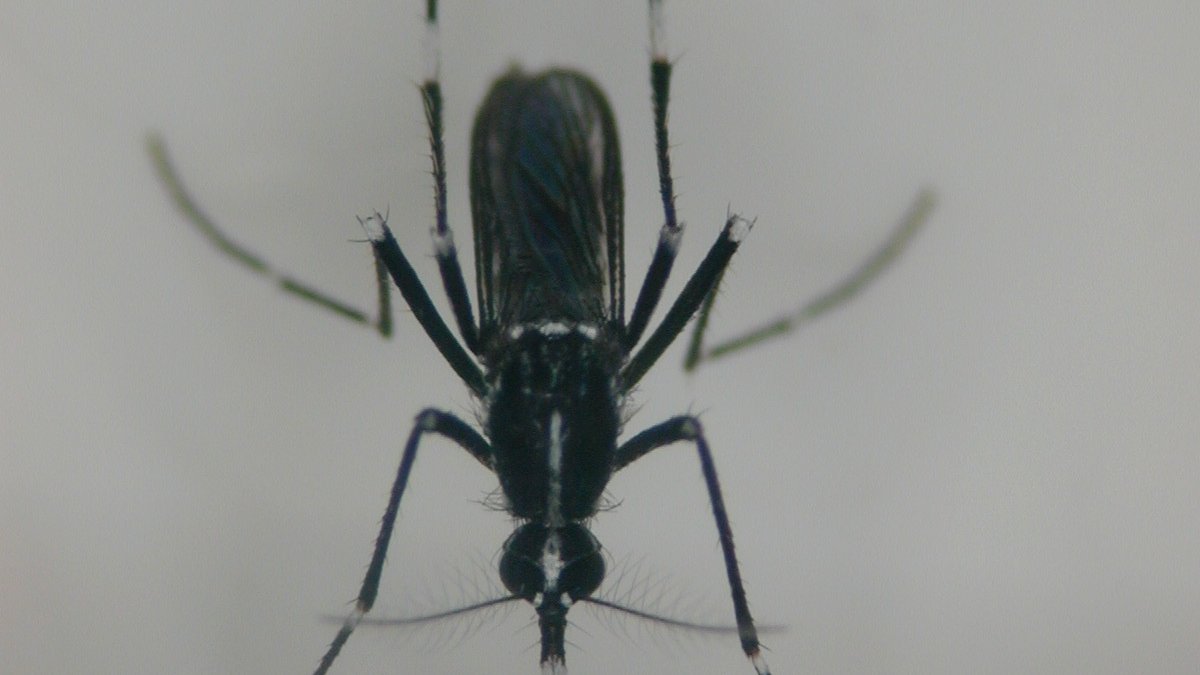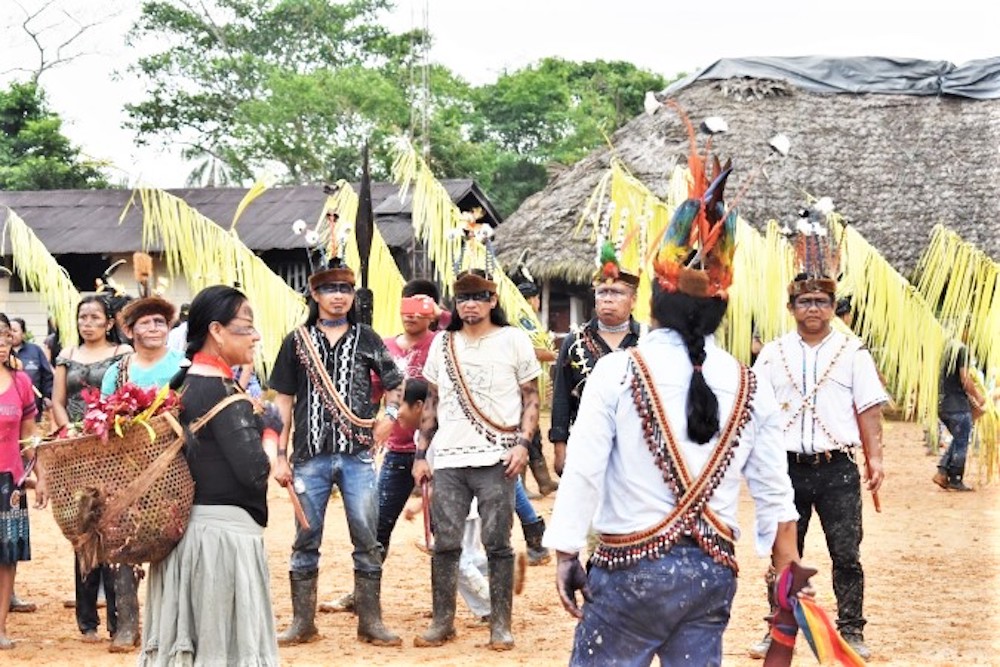World Mosquito Day 2021: Global warming promotes spread of mosquito-borne viruses
BNITM: Überwachung von Stechmückenpopulationen wichtiger Teil der Epidemie-Frühwarnsysteme
Hamburg - Durch weltweit steigende Temperaturen können wärmeliebende Stechmückenarten wie die Asiatische Tigermücke neue Lebensräume besiedeln. Gleichzeitig finden sich Infektionen mit tropischen Viren, die durch Stechmücken übertragen werden, zunehmend auch in Europa und Deutschland. So gab es in den letzten Jahren in Südeuropa mehrere Ausbrüche von Chikungunya- und Dengue-Fieber und in Deutschland wiederholt Infektionen mit Usutu- und West-Nil-Viren.
The latest research unit of the Bernhard Nocht Institute for Tropical Medicine (BNITM), headed by Prof. Jonas Schmidt-Chanasit, is investigating, among other things, how viruses interact with mosquitoes, how both spread in various countries of the global South, but also in Europe and Germany, and how outbreaks can be diagnosed and controlled even faster.

The warming of the global climate has consequences for human health. This was also recently confirmed by the Intergovernmental Panel on Climate Change (IPCC) in its latest world climate report. These include the fact that viruses transmitted by mosquitoes, so-called arboviruses, are increasingly spreading northwards. Urbanisation, global trade in goods, increased travel and bird migration are also contributing to the spread of arboviruses and invasive mosquito species such as the Asian tiger mosquito (Aedes albopictus).
The Bernhard Nocht Institute for Tropical Medicine (BNITM) devotes a significant part of its work to researching arboviruses and mosquitoes and developing early warning systems for arboviruses. The laboratory group of Dr Anna Heitmann und Dr Stephanie Jansen (Universität Hamburg), for example, is investigating the interaction of viruses and mosquitoes. In the level 3 safety insectarium, they work with different temperatures and changing light rhythms in their experiments. The aim is to find out what influence climate changes can have, for example, on the so-called vector competence of mosquitoes, i.e. on their ability to transmit arboviruses.
Together with Dr Renke Lühken's laboratory group („Arbovirus Ecology“), the group is also researching how insecticides, in this case larvicides, affect the vector competence of mosquitoes. Dr Lühken and his colleagues are also involved in various national and international research projects to monitor and, if necessary, control the spread of different mosquito species. In doing so, they work closely with the laboratory group of Dr. Dániel Cadar.

Dr Cadar and the members of his research group are working on emerging infectious diseases. One of the goals of their PREPMedVet project is to build a portable diagnostic sequencing platform. It should make it possible to analyse samples for many different pathogens simultaneously in the shortest possible time in the event of an outbreak through broad molecular testing. In cooperation with South American partners, Cadar is setting up a so-called metagenomic surveillance system in the tropical regions of the Amazon. The aim is to detect potentially pathogenic viruses at their source - in wild animals and insects - and to gain time to prevent spillover to humans.
Dr Hanna Jöst's research group is investigating the occurrence and spread of mosquitoes and arboviruses in Africa. There, febrile illnesses of unknown origin are often misdiagnosed as malaria. This is because in resource-poor areas it is often difficult to examine arbovirus infections by laboratory diagnosis.
Head of Department Prof. Jonas Schmidt-Chanasit: "Climate impact research and climate adaptation are not 'just' about coastal or flood protection. The global rise in temperature already has considerable consequences for our health. With the newly established Arbovirology Department, BNITM is helping to monitor and control the dangers posed by mosquito-borne viruses."

Prof. Esther Schnettler's independent research group investigates the interaction of viruses and mosquitoes at the molecular level. In the safety insectarium, she is investigating which factors influence vector competence: for example, the immune system of mosquitoes or co-infections with other viruses (e.g. insect-specific viruses that cannot be transmitted to humans). The research group uses its results to develop new methods to reduce the transmission of arboviruses by mosquitoes.
World Mosquito Day
On 20 August 1897, the British tropical physician Sir Ronald Ross proved that the malaria parasite is transmitted by female mosquitoes of the genus Anopheles. In doing so, he not only revolutionised malaria research and control. His findings are still fundamental today for understanding epidemics that originate from insects. In 1902, Ross was awarded the Nobel Prize for Medicine or Physiology.
Further information
Questions and answers on the subject of mosquitoes in Germany
Interesting facts about the Zika virus
A day with the BNITM's "Lord of the Mosquitoes", Dr Renke Lühken (Video)
Background information
The Bernhard Nocht Institute for Tropical Medicine
The Bernhard Nocht Institute for Tropical Medicine (BNITM) is Germany's largest institution for research, care and teaching in the field of tropical and emerging infectious diseases. Current research focuses on malaria, hemorrhagic fever viruses, immunology, epidemiology and clinic of tropical infections as well as mechanisms of virus transmission by mosquitoes. For handling highly pathogenic viruses and infected insects, the institute has laboratories of the highest biological safety level (BSL4) and a safety insectarium (BSL3). BNITM includes the national reference center for the detection of all tropical infectious agents and the WHO collaborating center for arboviruses and hemorrhagic fever viruses. Together with the Ghanaian Ministry of Health and the University of Kumasi, it operates a modern research and training center in the West African rainforest, which is also available to external working groups.
Contact person
Prof. Dr Jonas Schmidt-Chanasit
Head of Arbovirology/ Entomology Department
Phone : +49 171 212 7900, +49 40 285380 271
Email : schmidt-chanasit@bnitm.de
Dr Stephanie Jansen (UHH)
associated Research Group Leader
Phone : +49 40 285380-832
Fax : +49 40 285380-836
Email : stephanie.jansen@uni-hamburg.de
Dr Renke Lühken
Group Leader Arbovirology Ecology
Phone : +49 40 285380-862
Email : luehken@bnitm.de
Dr Dániel Cadar
Research Group Leader
Phone : +49 40 285380-840
Fax : +49 40 285380-400
Email : cadar@bnitm.de
Prof. Dr Esther Schnettler
Research Group Leader
Phone : +49 40 285380-208
Email : schnettler@bnitm.de
Julia Rauner
Public Relations
Phone : +49 40 285380-264
Email : presse@bnitm.de
Further information







